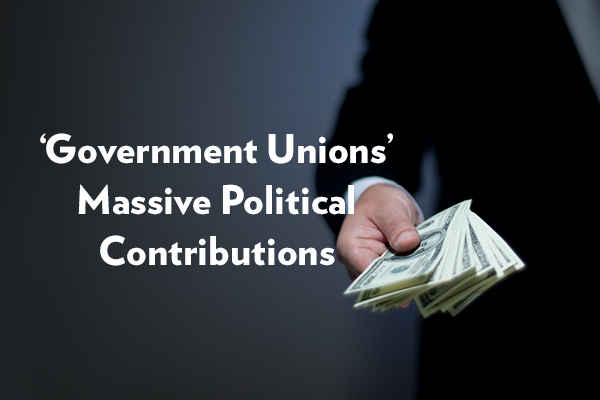Media

A Voice for Workers or Political Puppet Master?
Once again, government unions are among the biggest political spenders in Pennsylvania.
While we must wait weeks for a final tally of election spending, unions have already spent another $5 million since our last count in October, pushing total union PAC spending to $14 million in this election cycle.
Infographic:Total union spending since 2007
This includes nearly half a million dollars to Gov. Wolf, who has now received over $10 million in direct contributions from union PACs.
Union-funded election activity extends beyond donations to campaigns.
As a recent article from the Philadelphia Inquirer highlights, unions have actively engaged in mid-term electioneering:
Political work — door-knocking, phone banking, donating money to candidates — has long been part of the union playbook. But this year, and in a midterm election, no less, Pennsylvania unions have devised new strategies to mobilize and empower their membership to get involved in the political process.
These strategies include “political activist boot camp,” sending members to their workplaces to solicit coworkers' votes, and door-knocking. PSEA alone has knocked on 41,000 doors.
The United Homecare Workers of Pennsylvania (UHWP), a new union created thanks to a Wolf executive order, is the latest addition to the pro-Wolf union list. Their leadership is jumping into politics with vigor by skimming Medicaid money to campaign for Gov. Wolf with Facebook ads, video production, and canvassing.
In addition to these PAC activities, which are funded by voluntary contributions, membership dues bankroll political electioneering like get-out-the-vote efforts mentioned above and recommending candidates, such as PSEA’s membership magazine dedicating 11 pages for Gov. Wolf advocacy.
Since 2007, the top unions have spent $69 million of members’ dues on “political activities and lobbying” (this does not include most 2018 spending, which unions won’t report until far after the election).
Union members can freely donate to their union’s PAC, if they support this partisanship. But if they don't, thanks to the U.S. Supreme Court Case Janus v. AFSCME, public sector workers are no longer forced to fund union politics with which they disagree. That is if unions honor their members' choices. Unfortunately, Pennsylvania maintains unjust “maintenance of membership” clauses in union contract, which force public servants like William Neely to stay members even after choosing to resign.
However, with this new freedom, some workers are dropping their membership.
The National Education Association has lost 17,000 members. According to Politico, Pennsylvania’s NEA affiliate, PSEA, lost 800 members—despite robust efforts to prevent workers from resigning.
Union leaders should consider what’s driving their members to leave, and whether they should continue operating like a partisan political group, or return to prioritizing membership representation.